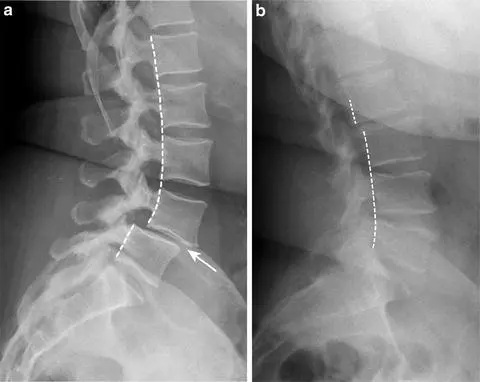
Spondylolisthesis is a condition where one vertebra in the spine slips out of its proper position and can occur in any part of the spine. Forward slippage of the vertebra is known as anterolisthesis. When a vertebra slips backwards, the condition is called retrolisthesis.
This condition can happen for a variety of reasons, including:
- Congenital: Some people are born with a defect or abnormality in their vertebrae that makes them more prone to spondylolisthesis.
- Degenerative: As we age, the discs in our spine can wear down and become less supportive. This can cause the vertebrae to shift out of place.
- Trauma: Spondylolisthesis can occur due to a traumatic injury to the back, such as a fall or car accident.
- Repetitive stress: Certain activities that involve repeatedly bending or twisting the spine can increase the risk of spondylolisthesis over time.
- Congenital: Some people are born with a defect or abnormality in their vertebrae that makes them more prone to spondylolisthesis.
- Degenerative: As we age, the discs in our spine can wear down and become less supportive. This can cause the vertebrae to shift out of place.
- Trauma: Spondylolisthesis can occur due to a traumatic injury to the back, such as a fall or car accident.
- Repetitive stress: Certain activities that involve repeatedly bending or twisting the spine can increase the risk of spondylolisthesis over time.
